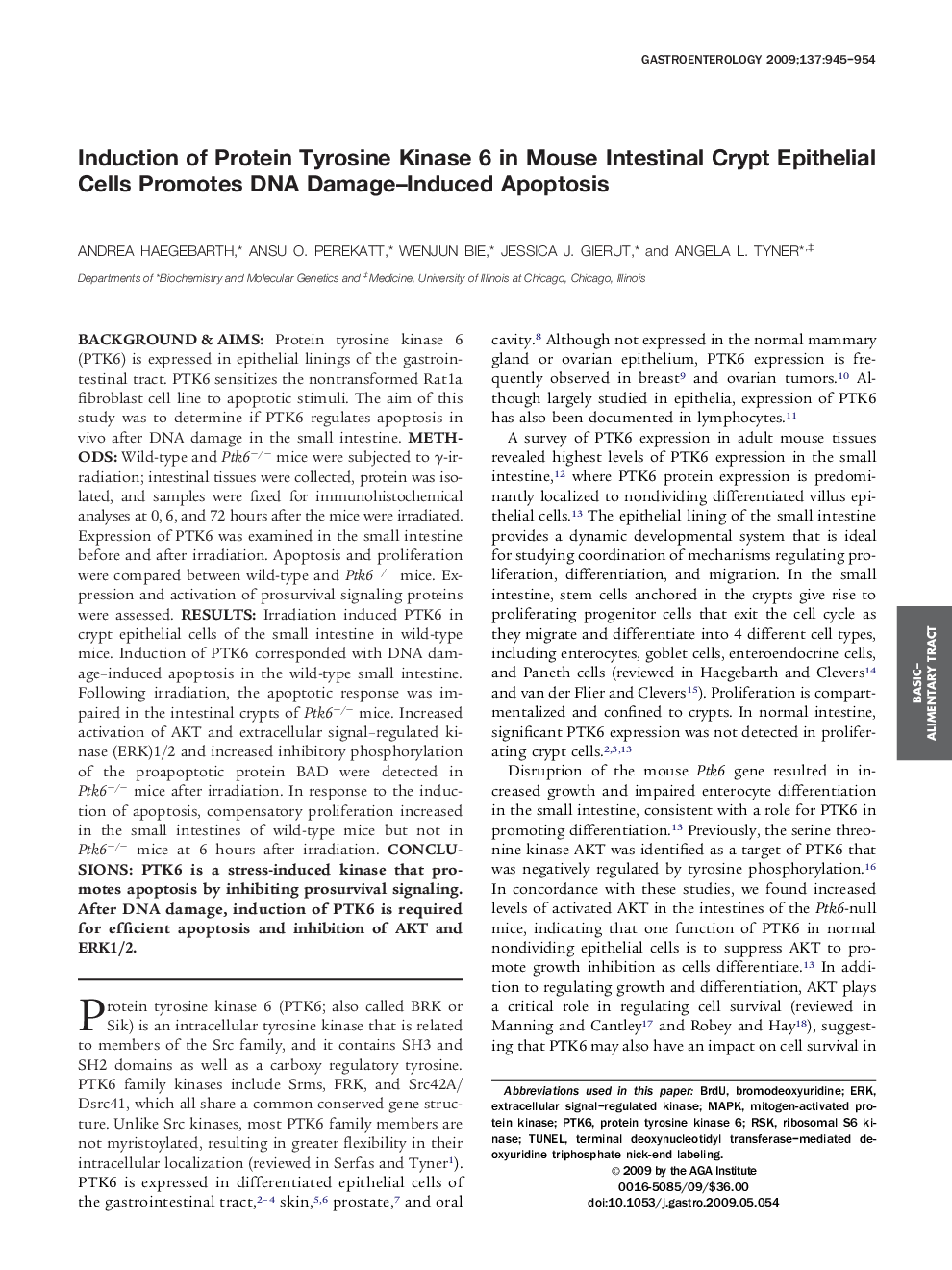| Article ID | Journal | Published Year | Pages | File Type |
|---|---|---|---|---|
| 3295369 | Gastroenterology | 2009 | 10 Pages |
Background & AimsProtein tyrosine kinase 6 (PTK6) is expressed in epithelial linings of the gastrointestinal tract. PTK6 sensitizes the nontransformed Rat1a fibroblast cell line to apoptotic stimuli. The aim of this study was to determine if PTK6 regulates apoptosis in vivo after DNA damage in the small intestine.MethodsWild-type and Ptk6−/− mice were subjected to γ-irradiation; intestinal tissues were collected, protein was isolated, and samples were fixed for immunohistochemical analyses at 0, 6, and 72 hours after the mice were irradiated. Expression of PTK6 was examined in the small intestine before and after irradiation. Apoptosis and proliferation were compared between wild-type and Ptk6−/− mice. Expression and activation of prosurvival signaling proteins were assessed.ResultsIrradiation induced PTK6 in crypt epithelial cells of the small intestine in wild-type mice. Induction of PTK6 corresponded with DNA damage–induced apoptosis in the wild-type small intestine. Following irradiation, the apoptotic response was impaired in the intestinal crypts of Ptk6−/− mice. Increased activation of AKT and extracellular signal–regulated kinase (ERK)1/2 and increased inhibitory phosphorylation of the proapoptotic protein BAD were detected in Ptk6−/− mice after irradiation. In response to the induction of apoptosis, compensatory proliferation increased in the small intestines of wild-type mice but not in Ptk6−/− mice at 6 hours after irradiation.ConclusionsPTK6 is a stress-induced kinase that promotes apoptosis by inhibiting prosurvival signaling. After DNA damage, induction of PTK6 is required for efficient apoptosis and inhibition of AKT and ERK1/2.
